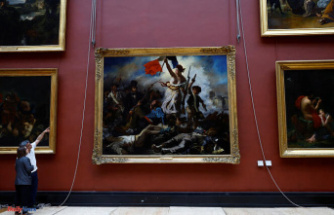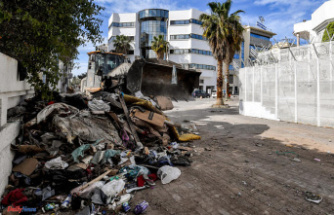From this past which does not pass or is so bad, this abscess always raw, how can we do pedagogical work? Six decades after the end of the Algerian War (1954-1962), time is running out to transmit to new generations, not the memory - saturated with litigation -, but the minimal knowledge surrounding a conflict whose actors and witnesses are becoming increasingly rare.
In 2022, the 60th anniversary of the Evian Accords – signed on March 18, 1962 – was the occasion for prolific production, including this documentary series by Georges-Marc Benamou and Benjamin Stora, It Was the Algerian War, rebroadcast, from Monday February 19 to Thursday February 22, on the National Assembly channel.
Throughout the narration, we see the utopia of French Algeria, undermined by its internal contradictions (a "civilizing" Republic denying political equality for so long), disintegrate in the face of the awakening of an indigenous people tearing itself apart at the “colonial night”.
The story radiates a schism with still painful consequences in both societies. From the Sétif massacres on May 8, 1945, to the independence festivities on July 5, 1962, including the All Saints' Day uprising of 1954; the “pacification” of the jebels; the Battle of Algiers in 1957; the return to power of General de Gaulle on May 13, 1958; barricade week in 1960; the generals’ putsch in 1961; Gaullist realpolitik in Evian and the despair of the pieds-noirs rallied to the murderous madness of the Secret Army Organization...
A chronological breakdown
A chronological breakdown gives a large place to the origins of colonization. “It was necessary to recount the violence of the conquest and land dispossessions to understand why the war broke out more than a century later,” underlines Benjamin Stora.
The authors’ assumed bias is to emphasize “missed appointments”. From the failure of Napoleon III's "Arab kingdom" project, torpedoed by the "nascent power of the army in Algeria", to the multiple betrayals of the promise of equality by a Republic driving the most moderate Muslims to despair.
Georges-Marc Benamou and Benjamin Stora promote historical figures (Messali Hadj, Ferhat Abbas) testifying to the plurality of currents of Algerian nationalism, not reducible to the orthodoxy of the National Liberation Front (FLN), as well as intellectual figures (Albert Camus, Germaine Tillion) having tried in vain to open other paths than those of the inevitability of indiscriminate violence.
Civilians will pay a high price for the latter, as evidenced, in particular, by the massacre by a local leader of the FLN of 374 inhabitants of the "treacherous" village of Melouza, in May 1957, Benjamin Stora reexhuming for the occasion the already chilling testimonies broadcast in his pioneering documentary, Les Années algériens (1991). “Algerians must also take responsibility for their history,” observes the historian.












